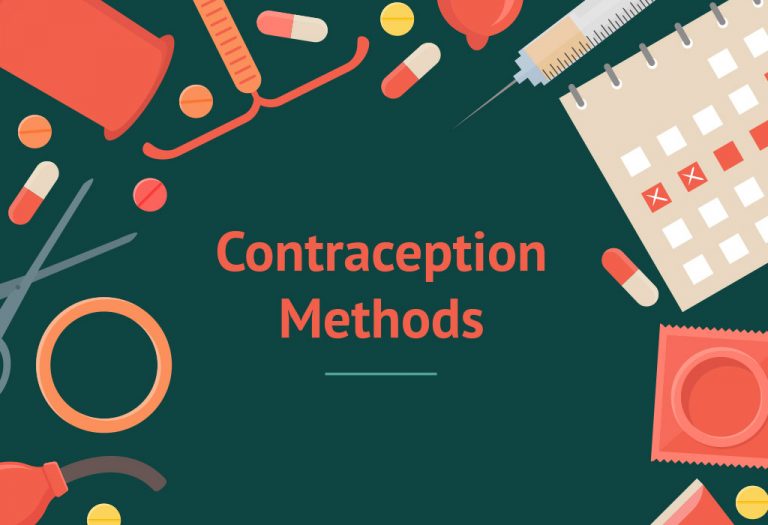Postpartum Rage – Causes, Symptoms and Treatment
Bringing a new baby into the world is often painted as a time of pure joy and cuddles, but let’s be real; it can also come with a whirlwind of unexpected emotions. Feeling sad or anxious is often talked about, but what about anger? One of the lesser talked about experiences some new moms face is postpartum rage, and it can be really hard to deal with. This isn’t just regular frustration or sleep-deprived irritability; it’s intense, sudden anger that can feel scary and overwhelming. In this article, we’ll break down what causes postnatal anger, the common symptoms, and how to manage it because, no, you’re not just “being dramatic.”
What Is Postpartum Rage?
Postpartum rage is something many new moms experience, but few talk about. It’s that sudden wave of anger that seems to come out of nowhere. You might feel irritated by things that never used to bother you, and afterwards, you’re left wondering, Why did I get so mad? Then comes the guilt, the shame, and the feeling that something just isn’t right.
This kind of anger isn’t just about having a short temper. It’s often a mix of physical and emotional stress: your hormones are shifting, your body is healing, you’re sleep-deprived, and you’re trying to care for a tiny human who needs you 24/7. It’s a lot. Add in the pressure to be a “perfect mom” and the lack of time for yourself; it’s no wonder things can boil over (1).
What makes postpartum anger tricky is that it’s often brushed off or hidden. It’s also sometimes linked to other postpartum conditions like depression or anxiety (2). Society expects new parents, especially moms, to be joyful and nurturing, so when intense anger shows up, it can feel confusing or even scary. But having these feelings doesn’t mean you’re a bad parent. It means you’re human, and your body and mind are going through a huge shift.
How Common It Is?
Postpartum rage is more common than most people realise. While there’s no exact number for how many parents experience rage specifically, studies show that about 1 in 7 women experience postpartum depression (3), which can often include or trigger feelings of intense anger or rage.
Causes of Postpartum Rage
Postpartum rage doesn’t just appear out of nowhere; it’s often the result of several emotional, physical, and mental factors coming together during an incredibly intense time. Here are some common causes of postpartum rage (2):
1. Hormonal Changes
After childbirth, your hormone levels drop dramatically, especially estrogen and progesterone. These shifts can affect your mood, making you more prone to irritability, anxiety, and sudden emotional reactions, including anger (4).
2. Sleep Deprivation
Newborns don’t exactly stick to a sleep schedule, and that chronic lack of rest wears down your patience fast. Exhaustion makes it harder to manage emotions, and when you’re running on empty, even small frustrations can feel overwhelming.
3. Overwhelm and Mental Load
From feeding schedules to constant crying to managing the household, the mental load of parenting can be crushing. Feeling like everything is on your shoulders can lead to burnout, and rage can be the breaking point when it all feels too much.
4. Underlying Postpartum Depression or Anxiety
Postpartum rage is often a symptom of deeper mental health struggles. Both postpartum depression and anxiety can include irritability or rage as key signs, even if sadness or worry aren’t as noticeable.
Symptoms of Postpartum Rage
Postpartum rage can show up in ways that feel intense, confusing, and sometimes even frightening. While every parent’s experience is different, there are some common signs of postpartum rage to look out for (5).
- Yelling, swearing, or aggressive behaviour
- Feeling constantly irritated or on edge
- Overreacting to minor frustrations
- Guilt or shame after losing your temper
- Trouble calming down once triggered
- Feeling withdrawn or hopeless
- Negative thoughts toward baby or family
- Trouble sleeping
- Heightened anxiety
- Feeling powerless or out of control
Difference Between Postpartum Rage and Postpartum Depression
Postpartum depression is more commonly known and usually involves feeling really sad, hopeless, or numb. Moms going through it might cry a lot, lose interest in things they once enjoyed, or feel disconnected from their baby (6).
On the other hand, postpartum rage shows up as intense anger, irritability, or sudden outbursts, sometimes over small things that wouldn’t normally bother you. While postpartum depression feels more like sinking into sadness, postpartum rage feels like being on fire with frustration.
Risks and Complications of Postpartum Rage
Postpartum rage isn’t just about feeling constantly irritated or overwhelmed; it can also have serious consequences. Feeling that level of anger all the time is exhausting and can trap you in a loop. The more irritated you get, the more likely it is to turn into anger, which only builds more frustration and keeps the cycle going.
If not addressed, this kind of rage can grow more intense and, in some cases, may develop into postpartum psychosis or lead to aggressive behaviour. Beyond the emotional toll, chronic anger can also put a strain on your physical health, increasing the risk of conditions like heart problems, type 2 diabetes, and even disordered eating habits (7).
Diagnosis of Postpartum Rage
Postpartum rage isn’t something doctors can diagnose with a test, but that doesn’t mean it’s not real. It’s often a sign of something deeper like postpartum depression or anxiety and can be just as serious.
A doctor will usually start by asking questions about your mood, sleep, energy levels, and how you’ve been feeling emotionally since giving birth. They may use screening tools like the Edinburgh Postnatal Depression Scale (EPDS) or other mental health questionnaires to help understand what you’re going through (8).
How Is Postpartum Rage Treated?
Postpartum rage can feel overwhelming, but you don’t have to keep struggling with intense anger or guilt on your own. Here are some common postpartum rage treatment options (2):
1. Therapy
Talking to a therapist, especially one who understands postpartum mental health, can help you process emotions, identify triggers, and learn healthy ways to cope with anger.
2. Medication
Postpartum rage medication often includes Selective Serotonin Reuptake Inhibitors (SSRIs) and Serotonin-Norepinephrine Reuptake Inhibitors (SNRIs). These medications help by boosting levels of brain chemicals that stabilise mood, improving emotional balance and reducing symptoms of anger and irritability (9).
3. Support Groups
Connecting with other moms going through similar experiences can be comforting. It reminds you that you’re not alone and gives you a safe space to share.
4. Lifestyle Changes
Small changes like getting more sleep, eating regular meals, asking for help, or taking short breaks can make a big difference in how you feel (10).
How Long Does It Last?
How long postpartum rage lasts can vary from person to person. For some, it may only last a few weeks during the early postpartum period, especially as hormones start to balance out and routines settle. For others, it can continue for several months or even longer, especially if it’s linked to untreated postpartum depression or anxiety.
Tips to Cope Up With Postpartum Rage
Postpartum rage can be hard to deal with, especially when you’re already tired, stressed, and trying to adjust to life with a new baby. Here are a few tips that may help you to help calm the anger and feel more in control (11):
1. Take a Break When You Can
Step away for a few minutes when things start to feel too heavy. Even a short walk, a shower, or a moment alone in a quiet room can help reset your emotions.
2. Talk to Someone
Don’t keep it all bottled up. Share what you’re feeling with a friend, partner, or therapist. Just being heard can be a big relief.
3. Get Some Rest
Lack of sleep can make everything feel worse. Try to rest when you can; even short naps can help your mood feel more manageable.
4. Be Kind to Yourself
Make time, even in small ways, to care for yourself, eat well, rest when you can, move your body, and do something you enjoy.
When to Call a Doctor?
It’s important to know that asking for help is a sign of strength, not weakness. If you’re experiencing postpartum rage and it’s starting to affect your daily life, relationships, or overall well-being, it may be time to reach out to a doctor or mental health professional (2).
FAQs
1. Can postpartum rage return with future pregnancies?
It’s possible. If you’ve experienced postpartum rage once, you might be more likely to deal with it again. However, knowing the signs early and having a support plan in place can help you manage them more effectively the next time around.
2. Can postpartum rage lead to more serious mental health issues?
If left untreated, postpartum rage can escalate into more severe conditions, such as postpartum depression, anxiety, or even postpartum psychosis. It’s important to address the symptoms early to prevent complications.
3. How can I prevent postpartum rage from ruining my relationship with my partner?
Be honest about what you’re feeling and ask for understanding and patience. It’s also important to share the responsibilities, give each other breaks, and ensure that both of you get emotional and physical support.
Postpartum rage can feel scary and isolating, but it doesn’t mean you’re a bad parent; it just means you’re going through a tough time. Asking for help, whether it’s talking to a therapist, joining a support group, or simply being kinder to yourself, is a step in the right direction. You don’t have to go through this alone; with the right support, things can get better.
References/Resources:
1. The University of Arizona – Postpartum rage: What new moms need to know
2. Cleveland Clinic – Postpartum Rage
3. National Library of Medicine – Perinatal Depression
5. Gidget Foundation Australia – Postpartum rage
6. Cleveland Clinic – Postpartum Depression
7. PubMed Central – Anger frequency and risk of cardiovascular morbidity and mortality
9. Cleveland Clinic – SNRIs (Serotonin and Norepinephrine Reuptake Inhibitors)
11. PubMed Central – Seeing Red: A Grounded Theory Study of Women’s Anger after Childbirth
Also Read:
Postpartum Cramps
Postpartum Fatigue
Stomach Pain After Delivery
Postpartum Complications & Their Solutions
Was This Article Helpful?
Parenting is a huge responsibility, for you as a caregiver, but also for us as a parenting content platform. We understand that and take our responsibility of creating credible content seriously. FirstCry Parenting articles are written and published only after extensive research using factually sound references to deliver quality content that is accurate, validated by experts, and completely reliable. To understand how we go about creating content that is credible, read our editorial policy here.





































